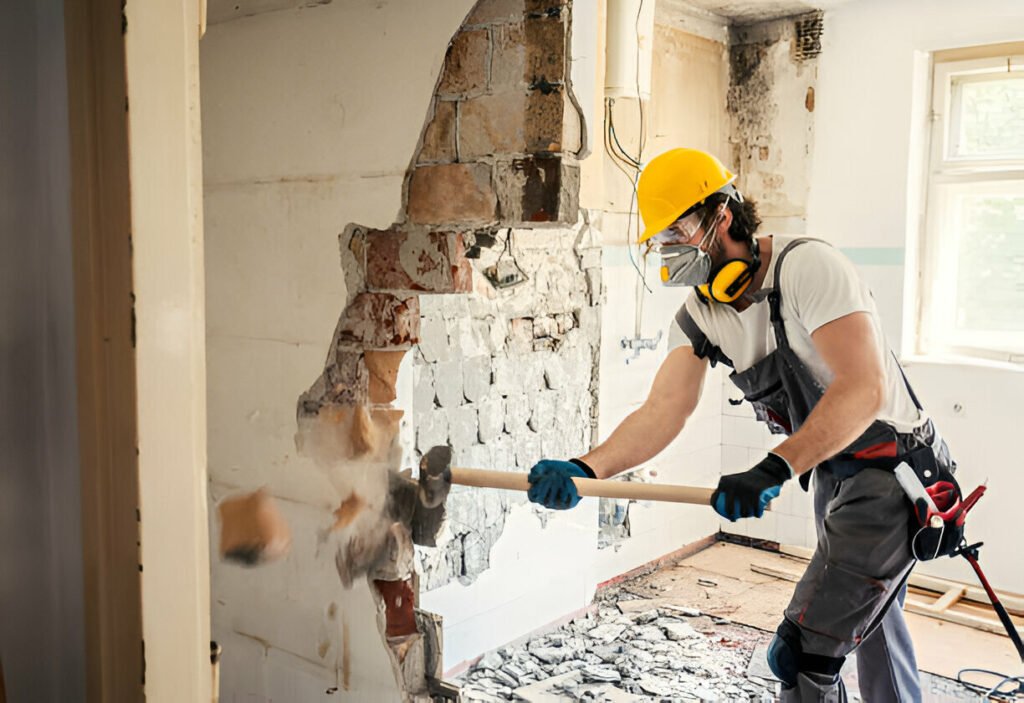Keeping your home in top condition is essential for both comfort and safety. Whether you’re a new homeowner or have lived in your house for years, understanding the basics of home maintenance can save you time, money, and stress. This guide covers everything you need to know to keep your home running smoothly.
Home maintenance might seem overwhelming, but it’s all about routine and consistency. With a well-structured plan, you can keep your home in excellent shape without feeling overwhelmed. This guide provides practical advice and easy-to-follow steps to maintain every part of your home.

Seasonal Maintenance Checklist
Keeping up with home maintenance tasks can be easier when you break them down by season. Here’s a quick rundown of what to do each season:
Spring:
- Inspect the roof for damage.
- Clean gutters and downspouts.
- Check windows and doors for leaks.
- Service the budgetdumpster system.
Summer:
- Inspect and clean the exterior siding.
- Check and clean the deck or patio.
- Maintain the lawn and garden.
- Clean and inspect the garage.
Autumn:
- Clean the chimney and fireplace.
- Winterize plumbing pipes.
- Inspect and seal gaps around windows and doors.
- Test smoke and carbon monoxide detectors.
Winter:
- Check for ice dams on the roof.
- Inspect and maintain the heating system.
- Remove snow and ice from walkways.
- Check the basement for leaks.
Plumbing: Tips for Prevention and Care
Regular plumbing maintenance can prevent costly repairs and water damage. Here are some tips:
- Inspect for Leaks: Regularly check under sinks and around toilets for leaks.
- Clean Drains: Avoid clogs by cleaning drains with a mixture of vinegar and baking soda.
- Water Heater Maintenance: Flush the water heater annually to remove sediment buildup.
- Winter Precautions: Insulate pipes in cold areas to prevent freezing.
Electrical System: Safety and Efficiency
Your home’s electrical system requires careful maintenance to ensure safety and efficiency:
- Regular Inspections: Have a licensed electrician inspect your electrical system every few years.
- Check Outlets and Switches: Replace any that are warm or make a buzzing sound.
- Upgrade Lighting: Use energy-efficient LED bulbs to reduce electricity costs.
- Safety First: Install GFCI outlets in kitchens, bathrooms, and outdoor areas.
HVAC System: Heating, Ventilation, and Air Conditioning
Maintaining your HVAC system can improve efficiency and extend its lifespan:
- Change Filters: Replace HVAC filters every 1-3 months.
- Professional Servicing: Have your system serviced by a professional annually.
- Clean Vents: Ensure that vents are clean and unobstructed.
- Thermostat Settings: Adjust thermostat settings according to the season to save energy.
Roof and Gutters: Protecting Your Home from the Top
Your roof and gutters are crucial for protecting your home from water damage:
- Inspect Regularly: Check for missing shingles, leaks, or damage.
- Clean Gutters: Remove leaves and debris from gutters and downspouts.
- Repair Promptly: Address any roof damage immediately to prevent leaks.
- Trim Trees: Keep branches away from the roof to prevent damage.
Windows and Doors: Insulation and Security
Proper maintenance of windows and doors can improve insulation and security:
- Seal Leaks: Use weather stripping or caulk to seal gaps around windows and doors.
- Inspect Locks: Ensure that all locks are functioning properly.
- Clean Regularly: Clean windows and doors to prevent buildup and damage.
- Upgrade: Consider upgrading to energy-efficient windows and doors.
Foundation and Basement: Preventing Water Damage
Keeping your foundation and basement dry is essential for structural integrity:
- Inspect for Cracks: Regularly check for and repair any cracks in the foundation.
- Waterproofing: Apply waterproofing sealant to basement walls.
- Check for Moisture: Use a dehumidifier to control moisture levels.
- Gutter Extensions: Ensure that gutters direct water away from the foundation.
Kitchen Maintenance: Appliances and Surfaces
The kitchen is a high-traffic area that needs regular maintenance:
- Clean Appliances: Regularly clean the refrigerator coils, oven, and dishwasher filters.
- Check for Leaks: Inspect under the sink and around appliances for leaks.
- Maintain Countertops: Use appropriate cleaners for different countertop materials.
- Ventilation: Ensure proper ventilation to avoid moisture buildup.
Bathroom Upkeep: Fixtures and Ventilation
Bathrooms require regular attention to prevent mold and mildew:
- Clean Fixtures: Regularly clean and inspect faucets, showerheads, and toilets.
- Check for Leaks: Look for leaks around the sink, toilet, and bathtub.
- Ventilation: Use exhaust fans to reduce humidity.
- Seal Grout: Reseal grout lines to prevent water damage.
Lawn and Garden Care
A well-maintained lawn and garden enhance your home’s curb appeal:
- Mowing and Watering: Regularly mow the lawn and water plants as needed.
- Fertilizing: Apply fertilizer to keep your lawn healthy.
- Weeding: Keep weeds under control to maintain a neat appearance.
- Pruning: Trim trees and shrubs to encourage healthy growth.
Pest Control: Keeping Unwanted Guests Away
Prevent pests from invading your home with these tips:
- Seal Entry Points: Close gaps around doors, windows, and the foundation.
- Remove Food Sources: Keep food stored in airtight containers.
- Regular Inspections: Check for signs of pests and address issues promptly.
- Professional Help: Consider hiring a pest control service for regular treatments.
Interior Maintenance: Floors, Walls, and Ceilings
Keeping the interior of your home in good condition is important for aesthetics and safety:
- Floor Care: Clean and maintain different types of flooring as recommended.
- Wall Repairs: Patch and paint any holes or cracks in the walls.
- Ceiling Maintenance: Inspect for water stains or damage and repair as needed.
- Cleaning: Regularly clean surfaces to prevent buildup and maintain a fresh appearance.
Home Safety: Alarms, Detectors, and Emergency Plans
Ensure your home is safe for you and your family:
- Smoke and CO Detectors: Test and replace batteries regularly.
- Fire Extinguishers: Keep fire extinguishers accessible and check their expiration dates.
- Emergency Plan: Create and practice an emergency evacuation plan.
- Security Systems: Consider installing a security system for added protection.
Regular home maintenance is key to preserving your investment and ensuring a safe, comfortable living environment. By following these guidelines and staying proactive, you can avoid costly repairs and enjoy peace of mind knowing your home is well-maintained.


